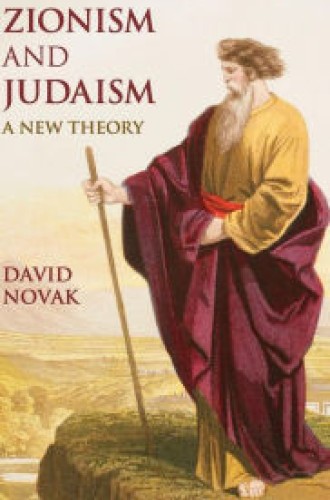Zionism's theological roots
Michael Walzer, in The Paradox of Liberation, has written of the complex and vexed relationship between Judaism and contemporary Zionism. Now David Novak has weighed in on the same question but finds nothing vexing or complex about it. His book is a rigorous and coherent theological argument that will illumine those who pay attention to the Israeli-Palestinian crisis, as well as those who wish to probe the theological and ideological underpinnings of the state of Israel.
The heart of that theology is the claim of election, which Novak traces in four dimensions, all of them unilateral on God’s part and without explanation. Novak writes that God’s choices are “infinitely more radical than our own.” These four aspects of God’s electing action are simply givens on which his entire argument rests.
First, God chose to create the universe as God’s possession. The universe is always to stand before God. Second, God chose to create human persons who are God’s “partners in their own making.” Human persons are addressed by and answerable to God. Third, God chose Israel/the Jewish people as “the optimal community for the God-human relationship.” Novak reiterates much that Joel Kaminsky has written on the election of Israel, which both authors take as an absolute given. These three claims are unexceptional in theological discourse; readers of my Theology of the Old Testament will recognize that I have treated these elective choices as “God’s partners,” a phrase that Novak also uses.






